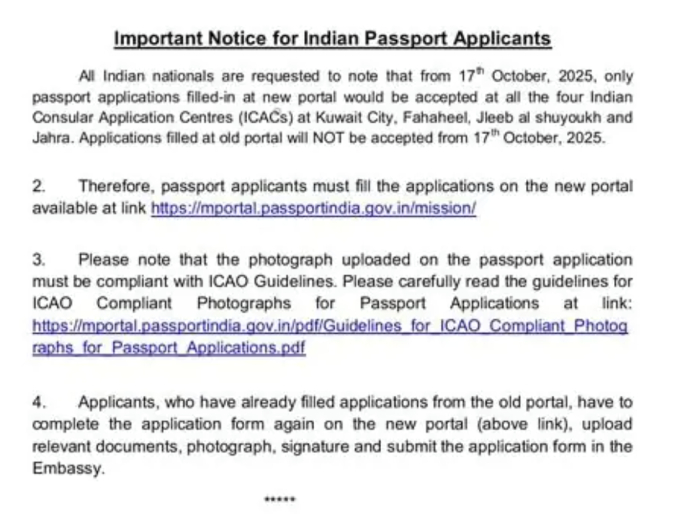The municipality finalized modifications to advertising regulations with stiffer fines and new licensing restrictions.
The Kuwait Municipality has completed its comprehensive study on proposed amendments to the advertising regulations, paving the way for their referral to the Municipal Council for review and approval.
According to a copy of the draft obtained by Al-Anba daily, the updated regulations introduce new articles, definitions, fines, and operational requirements to improve oversight, ensure public safety, and preserve the visual appeal of Kuwait’s urban landscape.
Stricter Penalties for Violations
- The amendments introduce graduated fines for advertising violations:
- KD 100–500 for advertising social events without a license or failing to renew an existing license.
- KD 500–3,000 for informational or business-related advertisements or for promoting prohibited goods.
- KD 3,000–5,000 for displaying commercial advertisements without obtaining a proper license.
New Definitions and Technical Standards
- The revised regulations introduce a series of new definitions, clarifying terms such as advertising medium, advertising site, and electronic billboard.
- Advertising medium now includes any fixed or mobile means — traditional or digital — used for promotional purposes, including billboards, vehicles, posters, and screens.
- Advertising site covers locations such as shops, public buildings, state property, beaches, vehicles, and marine sites.
- Electronic billboards are categorized as moving or fixed, depending on whether the content changes during the license period.
- To reduce glare and visual clutter, billboards are prohibited from using strong lighting, and trade names must appear in uniform color and size, except for licensed commercial agencies. The maximum height for billboards and their bases has been capped at seven meters.
New Licensing and Renewal Procedures
Under the new framework, advertising licenses will be issued and renewed electronically. The Municipality retains the right to revoke or shorten the validity of any license when required by public interest, without financial liability or compensation to the license holder.
- Facade advertisements will share the same validity period as the related commercial license.
- Other advertisement licenses will be valid for one year, except for auctioned billboards or those with special terms.
- Licensees must maintain their advertisements throughout the validity period and remove them within three weeks of license expiry, cancellation, or business closure. If they fail to do so, the Municipality will remove the ads at the licensee’s expense.
Design and Location Restrictions
- The Municipality will determine the location, dimensions, and specifications of each billboard as part of the licensing process.
- No modification may be made without prior municipal approval.
- Empty billboards must not be left bare to prevent visual pollution.
- Aesthetic frames are allowed but must not exceed 50 cm on each side and will not count toward the billboard’s total area.
- A minimum distance of 300 meters must separate each billboard on highways.
- Bridge advertisements are banned, following objections from the Public Authority for Roads and Land Transport.
Special Provisions and Fees
- Lightbox advertisements on shop fronts are now formally regulated.
- An annual fee of KD 40 will apply to advertisements displayed on motorcycles offering delivery services.
- Commercial advertising companies will pay an annual fee of KD 100 for their ads.
- For electronic screens, a minimum annual fee of KD 75 per square meter will be charged for each display side.
Advertisements on Vehicles
- Ads may be placed on taxi sides without protruding.
- Fixed electronic billboards (maximum 40 cm high × 120 cm wide) may be mounted on vehicle roofs, provided they are self-lit and within size limits.
- Lighting must be fixed and non-dazzling, and installation requires Traffic Department approval.
Shopfront and Facade Advertising
For shops and establishments, facade advertisements must adhere to the following:
- Installed on or above the shop’s front facade, without obstructing views.
- Height not exceeding three meters.Must not extend beyond the property boundaries.
- Lighting must be self-contained and static.
- Design plans must be approved by a municipality-accredited engineering office confirming material safety and installation quality.
- Shops in multi-story buildings must use fixed, non-moving lighting systems, while projections may not exceed five meters in length or two meters in height.
Enhancing Urban Aesthetics and Order
The updated advertising regulations reflect the Municipality’s broader goal of organizing the advertising sector, ensuring compliance with safety standards, and enhancing visual harmony in Kuwait’s streets and public spaces. Once approved by the Municipal Council, the new rules will form the foundation for a modernized, transparent, and unified advertising system.





